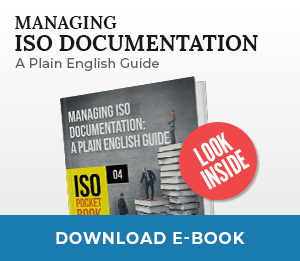Once you complete the first ITIL training and examination, the ITIL Foundation (if you haven’t, read the ITIL Foundation – all you need to know article), it is strongly recommended that you don’t attempt implementing ITIL practices immediately afterward. There’s a valid reason behind this recommendation, because ITIL Foundation provides only a general introduction and overview of ITIL practices, and that’s not enough to start ITIL implementation on your own. In order to gain more in-depth information about ITIL best practices, consider the next step in the ITIL qualification scheme: ITIL Intermediate.
ITIL Intermediate is a two-stream, module-based training and examination level, but neither of those streams or modules awards you with a certificate and title. However, each exam in the ITIL Intermediate module will award you with a certain number of credits (or points, but more on that later) which can be used for ITIL Managing Across the Lifecycle (MALC) and ITIL Expert certification.
In general, the target audience for ITIL Intermediate level includes IT professionals working in an ITIL-implemented organization, or in an organization that is currently implementing ITIL practices. However, since this level of ITIL Qualification has two distinctive streams, the target audience may vary depending on the stream:
- Service Lifecycle – oriented toward management/leader roles that require broader management focus of ITIL practices, and may need to work/manage across capability areas.
- Service Capability – oriented toward those more day-to-day process-oriented professionals.
ITIL Intermediate – Service Lifecycle
The Service Lifecycle stream of the ITIL Intermediate level covers introduction to the Service Lifecycle, its principles, processes involved, functions and activities; as well as technology and implementation considerations within each stage. The ITIL Service Lifecycle stream consists of five modules:
- Service Strategy
- Service Design
- Service Transition
- Service Operation
- Continual Service Improvement
In order to participate in any module, you need to acquire the ITIL Foundation certificate first. And within ITIL Intermediate – Service Lifecycle stream, each module requires at least 21 contact hours (3- to 4-day courses) of training before you can take the exam.
Once you complete any Service Lifecycle module exam with success, you’ll be awarded 3 credits within the ITIL Qualification.
ITIL Intermediate – Service Capability
The ITIL Service Capability stream is oriented toward a deeper understanding of ITIL processes and roles (here you can find a compiled list of all ITIL Processes and Functions across the service lifecycle), how they are implemented, and how they interact within each stage of the Service Lifecycle. It consists of four modules:
- Operational Support and Analysis
- Service Offerings and Agreements
- Release, Control and Validation
- Planning, Protection and Optimization
Choosing your training and examination path within the ITIL Intermediate level
The ITIL Qualification Scheme may be confusing (but we’ve made this ITIL Certification article to make more it clear), because it allows you to choose parts among the modules in the Intermediate level in order to advance toward MALC and Expert certificate levels. There’s an obvious need for keeping your focus on specific areas of interest, though there are benefits from gaining knowledge in diverse areas. Luckily, both are possible due to the fact that modules in the Service Lifecycle and Service Capability streams have areas of overlap.
Areas of moderate content overlap between streams, which should be avoided, are:
- Service Delivery, and Service Offerings and Agreements
- Service Transition, and Release, Control and Validation
- Service Operation, and Operational Support and Analysis
However, even if you decide to mix those in the training and examination paths, you’ll still be awarded the full number of ITIL Qualification credits that can be used for MALC and ITIL Expert level.
Classroom and online training options
There are classroom and online training options for ITIL Intermediate level. Some ITIL Training Organizations provide both online and classroom options, some are purely online, and others offer only classroom trainings.
Each form of training has its own benefits and limitations, depending on your own preference and convenience; classroom training with an expert trainer can be very beneficial, but online training (with a live or e-mail based trainer) offers a convenient way of training at home, or on your own time.
Exams are performed online through Examination Institutes, and in the case of classroom training, a trainer will oversee the (closed book) exam. For online exams, you must use a computer with a webcam enabled.
Note that in order to move to the MALC qualification level, you’ll need at least 17 credits gathered in the ITIL Intermediate level.
And you can find a compiled list of all ITIL trainings here: ITIL Certification Path – list of all available ITIL trainings, exams and certificates.

 Neven Zitek
Neven Zitek 



